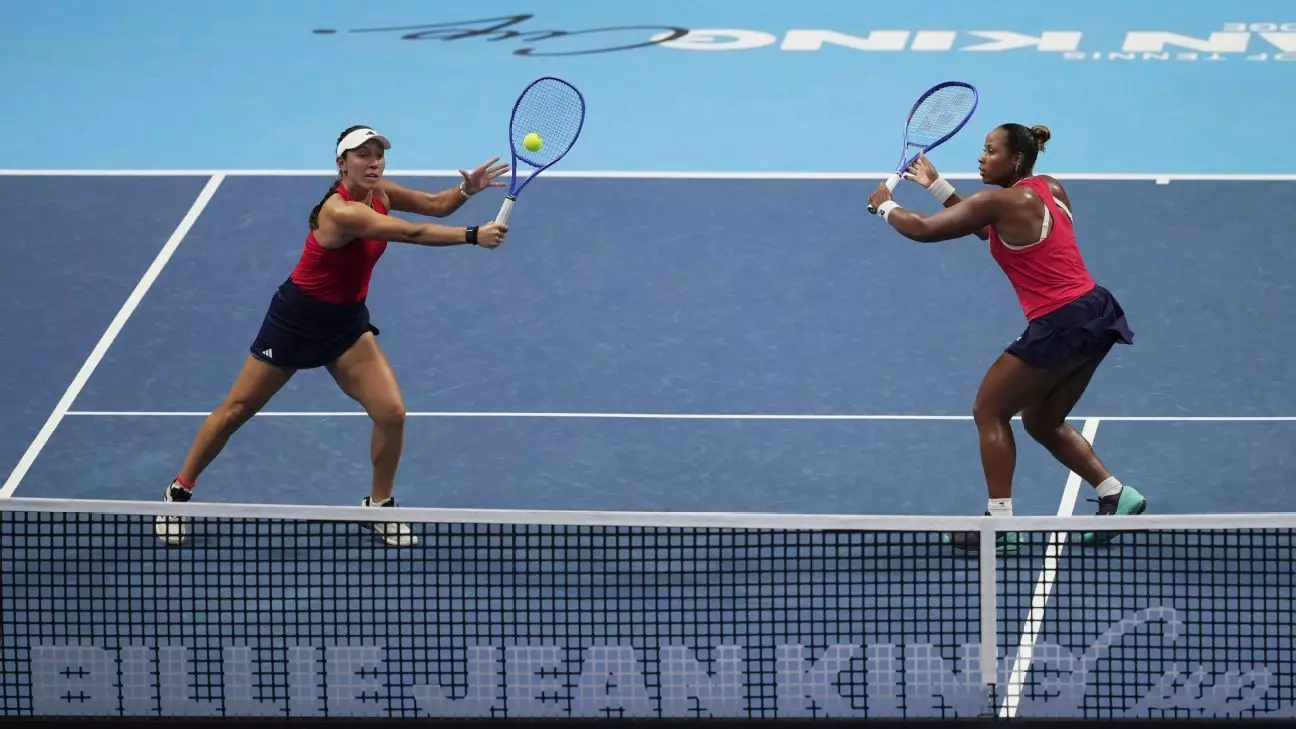In a thrilling showdown in Shenzhen, the United States women’s tennis team demonstrated remarkable grit and determination by advancing to the Billie Jean King Cup semifinals for the first time since 2021. The victory was not merely about progression; it was about asserting resilience in the face of intense competition and personal setbacks. Jessica Pegula, arguably the team’s most consistent player, exemplified this mindset. After suffering her first defeat to Elena Rybakina in over two years, Pegula refused to let the loss define her mood. Instead, she regrouped with Taylor Townsend and showcased her doubles prowess, culminating in a decisive win that kept the American hopes alive.
Simultaneously, Emma Navarro’s unexpected victory over Yulia Putintseva highlighted the tournament’s unpredictability and the importance of mental fortitude. Navarro’s resilience in saving match points and maintaining focus through a grueling three-set clash signifies the kind of mental strength that elevates teams beyond mere talent. Her ability to perform under pressure reaffirms that stamina and mental clarity often surpass raw skill in high-stakes matches.
Clash of Titans and Strategic Excellence
The tournament also spotlighted the relentless competition among the world’s elite. Rybakina’s dominant win over Pegula reminded everyone of her top-10 caliber and the unpredictable nature of singles tennis. Yet, Pegula’s response—pairing expertly with Townsend to brush aside Yulia Putintseva and Elena Rybakina—demonstrated strategic brilliance and a team-oriented mindset. Townsend, the world’s top doubles player, was instrumental in clinching the doubles point, winning the second-set tiebreak decisively on a double fault by Rybakina. This collaboration exemplified the importance of synergy; singles stars can’t always carry the entire burden, and teamwork remains vital.
However, behind the scenes, Pegula faced controversy regarding comments about Chinese cuisine—an incident that threatened to overshadow her athletic performance. Her subsequent apology reflected character and humility, traits essential for leadership. Her goal was clear: help her team succeed, and she did just that, embodying resilience not only on the court but also off it.
Emerging and Underlining Future Contenders
On the other side of the draw, Britain demonstrated authority by sweeping Japan in straight sets, earning their semifinal spot. Sonay Kartal’s victory over Ena Shibahara showcased rising talent, while Katie Boulter’s commanding win over Moyuka Uchijima signaled Britain’s readiness to challenge stronger opponents. Their victories emphasize that winning isn’t solely about individual prowess but also about cohesive team effort and the emerging prowess of young players eager to make their mark.
Meanwhile, Ukraine’s impressive performances, with Marta Kostyuk and Elina Svitolina routing their opponents, display that experience and resilience remain key for nations seeking to dethrone the dominant powers like the United States and Italy. Italy’s earlier victory over China highlighted their consistent strength, suggesting a potential pathway where seasoned players can capitalize on experience to advance further.
While the tournament’s narrative continues to evolve, one undeniable theme stands out: resilience, strategy, and unity are the true driving forces behind conquest. The U.S. team’s recent triumph isn’t just a step forward; it’s a declaration that they’re ready to embrace challenges with confidence, making their quest for the Billie Jean King Cup title more compelling than ever.


Leave a Reply